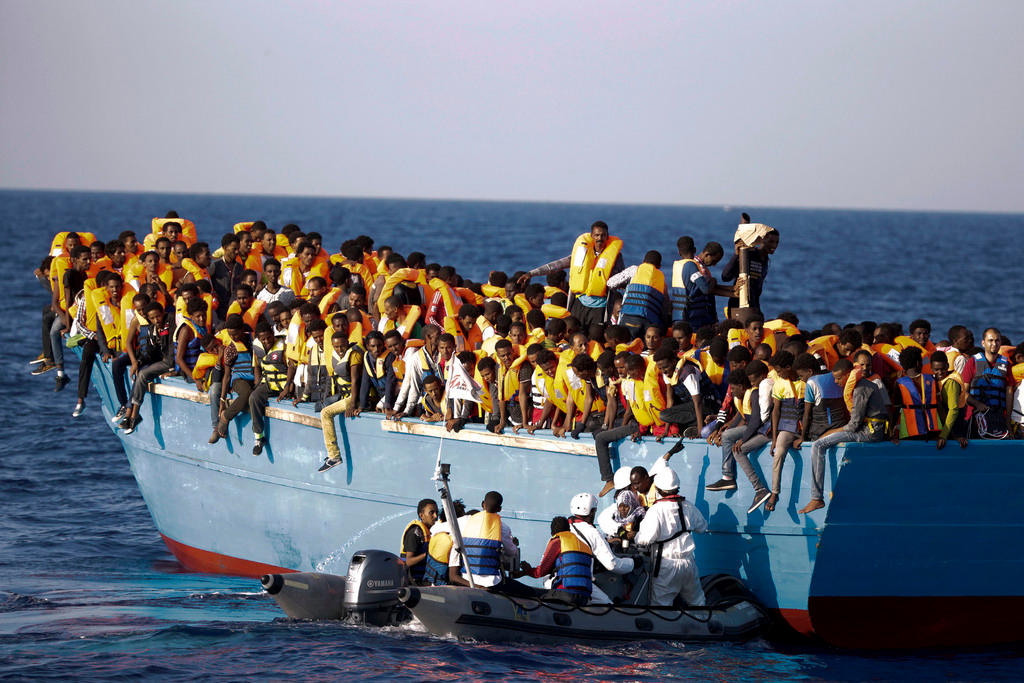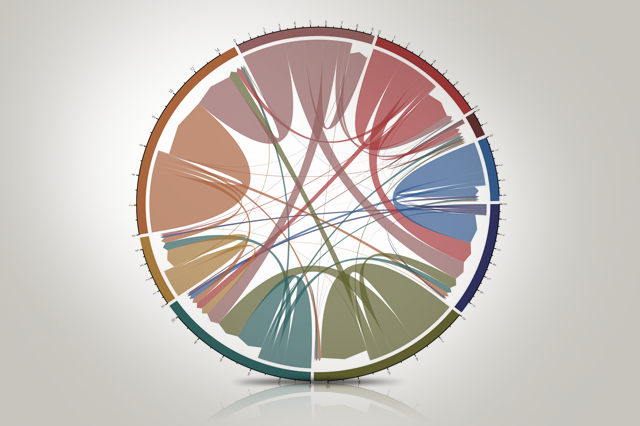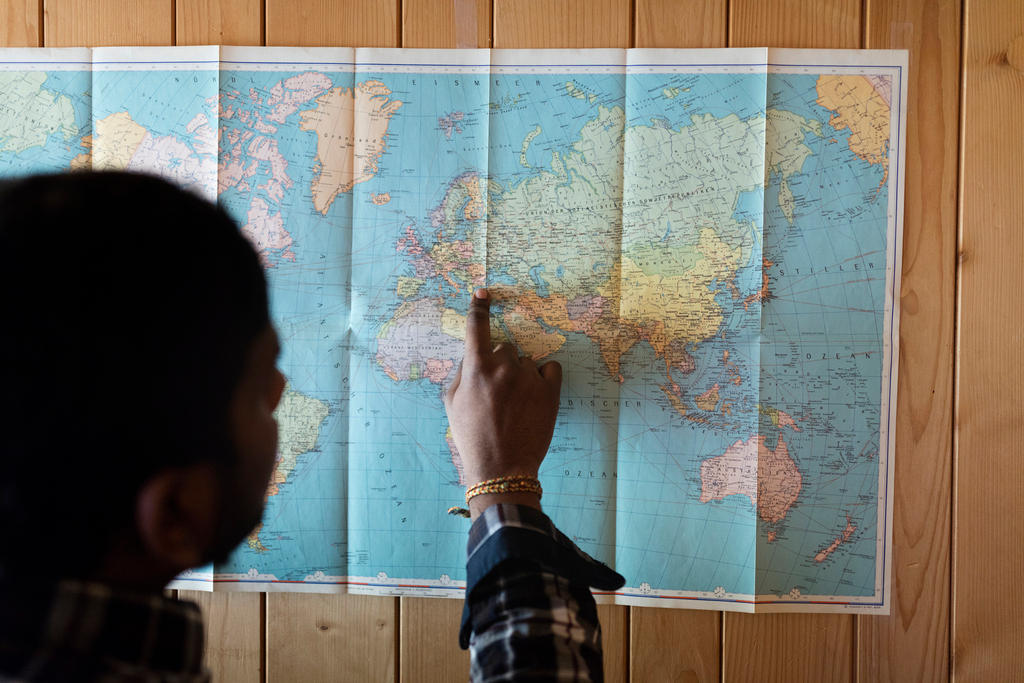Wanted: high-skilled, non-Muslim asylum seekers

Europeans are more likely to accept asylum seekers who have a higher employability, have been persecuted or tortured in their homeland, and are Christians rather than Muslims, according to Zurich and international researchers.
Dominik HangartnerExternal link, from the University of Zurich’s Department of Political Science and the London School of Economics and Political Science, teamed up with colleagues from Stanford University to compile 180,000 fictitious profiles of asylum seekers, which randomly varied along nine attributes: age, gender, country of origin, previous occupation, religion, language skills, reasons for migrating, vulnerability and asylum testimony.
The hypothetical profiles were then evaluated by 18,000 citizens from 15 European countries, including Switzerland.
“Our results reveal that not all refugees are equal in the eyes of the European public,” said Hangartner in a statement.External link
Respondents from all countries preferred asylum seekers with better vocational qualifications and knowledge of the host country’s language. The probability of being accepted was 13% higher for doctors and 9% for teachers compared with previously unemployed asylum seekers.
“The respondents favoured asylum seekers who were more likely to contribute to the economy,” Hangartner explained.
Humanitarian considerations also played an important role. Asylum seekers who had fled for reasons recognised by the Geneva Convention on refugees were more accepted all over Europe. People persecuted on political, religious or ethical grounds had a 15% more chance of being accepted than those primarily seeking economic opportunities, for example.
Muslims and Christians
Religion was a key factor. Muslims were 11% less likely to be accepted than Christians from a comparable background, the survey found.
“As Christians were preferred only slightly over agnostics, the result reflects a strong anti-Muslim bias – not a pro-Christian one,” Hangartner stated. Although this bias existed across all countries and all respondent groups, it was twice as strong among people on the right of the political spectrum compared with those on the left.
“The strong preference for high-skilled, Christian asylum seekers who can speak the language of the host country poses major challenges for policymakers whose goal is to accept and integrate refugees,” added Hangartner.
The results of the large-scale international survey were published in the journal ScienceExternal link on Thursday.

In compliance with the JTI standards
More: SWI swissinfo.ch certified by the Journalism Trust Initiative


You can find an overview of ongoing debates with our journalists here. Please join us!
If you want to start a conversation about a topic raised in this article or want to report factual errors, email us at english@swissinfo.ch.